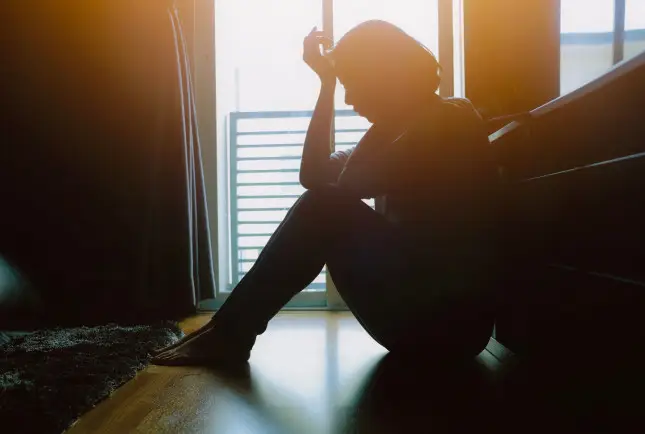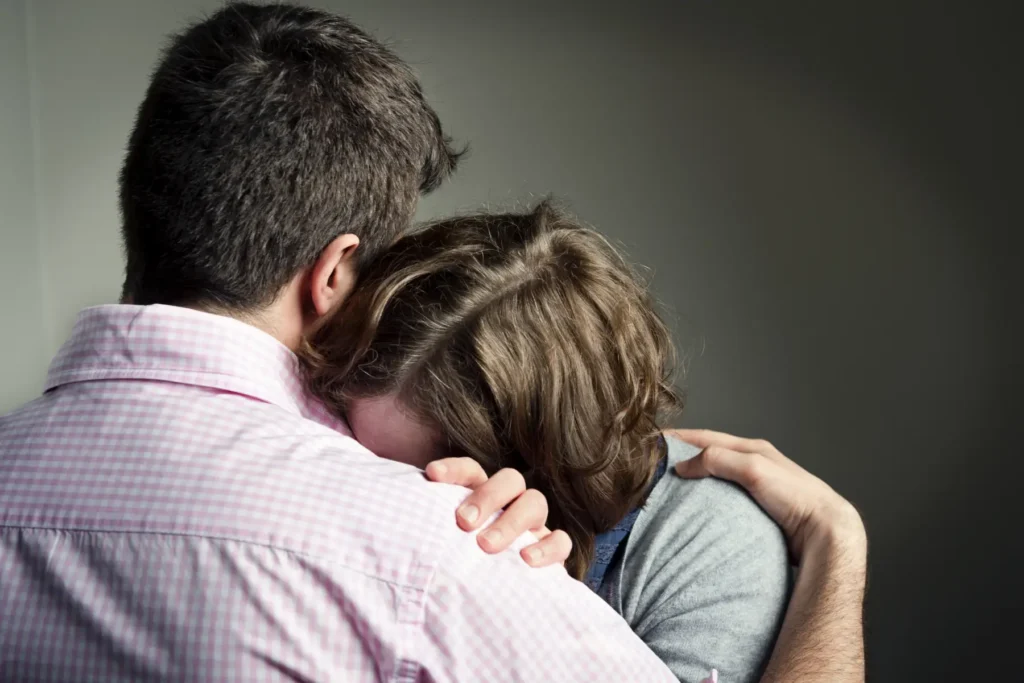Losing a pregnancy is a deeply personal and often heartbreaking experience. If you’re reading this, you might be seeking ways to navigate through the complex emotions and possibly the symptoms of depression that can follow a miscarriage.
But remember, that you’re not alone, and it’s okay to seek help and find ways to care for yourself during this tough time.
In this blog, we’ll walk through understanding your feelings, and when it might be right to seek professional help. We’ll also look into practical self-care routines that can aid your emotional recovery and how online tools can help you identify if what you’re feeling might be depression.
Contents
How Does a Woman Feel After a Miscarriage?

Experiencing a miscarriage is often an emotionally complex event, with feelings that can vary greatly from one individual to another. A woman’s emotions can vary widely and might include:
After a miscarriage, a woman’s emotions can vary widely and might include:
- Grief and Sadness: Intense feelings of loss are common, often resembling the grief experienced after any significant loss.
- Guilt and Self-Blame: Many women unfairly blame themselves, wondering if their actions influenced the outcome. It’s important to understand that miscarriages are typically due to factors beyond one’s control, like chromosomal abnormalities.
- Isolation and Loneliness: It’s easy to feel alone, especially if she doesn’t know others who have gone through a similar experience or if she perceives a lack of understanding from those around her.
- Anxiety and Fear: There’s often anxiety about the future, especially regarding the health of potential future pregnancies.
- Relief: In some situations, relief is a natural response, particularly if there were complications with the pregnancy. Feeling relief doesn’t mean the loss isn’t hard.
- Depression: Persistent sadness might develop into depression. Recognizing when sadness transforms into something deeper is crucial for seeking necessary support.
- Anger: Feeling angry is normal, whether it’s directed towards oneself, the situation, or even others.
Is it Normal to Feel Depressed After a Miscarriage?

Yes, it is entirely normal to feel depressed after a miscarriage. Miscarriage can be a devastating loss not only of the pregnancy but also of the expectations and dreams associated with it.
Like any grieving process, the feelings following a miscarriage can include profound sadness, emptiness, and a sense of loss that can manifest as depression. Women may feel pressured to quickly move on, which can exacerbate feelings of isolation and sadness.
Moreover, concerns about fertility and the fear of future miscarriages can also contribute to ongoing depression.
It’s important to recognize these feelings as part of a normal response to a significant emotional loss. However, if the depression persists or interferes with daily functioning, it might be a sign that professional help is needed.
Free Online Depression Test After a Miscarriage
Are you struggling with your emotions after a miscarriage? To help you understand your feelings better, we’ve created a quick and simple online depression test.
Click the button now to start the test—it’s a straightforward step that could provide significant support for your emotional recovery.
How to Cope with Grief After a Miscarriage

Coping with grief after a miscarriage is a deeply personal process, and there is no “right” way to handle it. However, here are some approaches that may aid in managing the emotional pain associated with a miscarriage:
- Allow Yourself to Grieve: Recognize that grief can manifest in many ways and that all your feelings are valid. Give yourself permission to feel whatever emotions arise, and understand that grieving is a process that takes time.
- Talk About Your Loss: Open up to trusted friends or family members about your miscarriage. Sometimes, just talking about your loss can help alleviate some of the pain and help others understand how to offer the support you need.
- Create a Ritual or Memorial: Many find comfort in creating a personal ritual or a memorial for the pregnancy, such as planting a tree, writing a letter, or creating a piece of art. This can provide a sense of closure and a dedicated way to remember your loss.
- Professional Help: If your grief feels too heavy to manage on your own, or if you notice signs of depression, consider seeking help from a mental health professional. Therapy can provide a safe space to express your feelings and develop strategies for coping with loss.
- Take Care of Your Physical Health: Grief can take a toll on your physical health, so try to maintain a routine that includes nutritious meals, regular exercise, and enough sleep. Physical activity, in particular, can help reduce stress and improve your mood.
- Postpone Major Decisions: If possible, avoid making significant life decisions while you are grieving. Allow yourself some time to heal emotionally before tackling other major changes or challenges.
Remember, moving through grief is not about “getting over” your loss but learning how to live with it. Take each day as it comes and be gentle with yourself as you navigate this challenging time.
Self-Care Strategies to Heal

Taking care of yourself after a miscarriage is crucial for both emotional and physical recovery. Here are some straightforward and practical self-care tips:
- Prioritize Rest: Allow yourself plenty of sleep and rest to help your body recover.
- Eat Nutritiously: Focus on balanced meals with fruits, vegetables, proteins, and whole grains.
- Stay Hydrated: Keep up your fluid intake, especially water, to help your body heal.
- Gentle Exercise: Consider light activities like walking, yoga, or stretching to boost mood and energy.
- Practice Mindfulness: Try meditation or deep breathing exercises to manage stress and focus on the present.
- Journal Your Feelings: Writing down your thoughts can help process your emotions privately.
- Engage in Hobbies: Spend time on activities you enjoy to help find moments of joy.
- Limit Commitments: Feel free to say no to obligations that feel overwhelming during this time.
These simple steps can significantly aid in your healing process, helping you cope with loss and move towards recovery.
When Should You Consider Professional Help?
Grief is a natural response to miscarriage, but when persistent sadness turns into depression, it may be time to seek professional help. Signs that you might need support include: an inability to perform daily tasks, a persistent feeling of hopelessness, and a loss of interest in activities you once enjoyed. Changes in sleep patterns, appetite, or significant weight fluctuations are also indicators that professional guidance could be beneficial.
If you find yourself withdrawing from social interactions, feeling overwhelmingly sad, or having thoughts of self-harm or suicide, these are urgent signs that it’s important to reach out to a therapist or counselor. Getting the right support can help you navigate your grief and move toward healing.
Get Free Help For Depression
If feelings of sadness and depression from your miscarriage have become overwhelming, My Mind Mantra is here to support you. We offer compassionate listeners dedicated to understanding and hearing your feelings, providing a space where you can talk openly and be heard. Our team understands the profound impact of such experiences and offers the empathy and support you need during this tough time.
Click on the link to download our app and TALK TO A LISTENER.
For those needing more specialized support, Mantra Care is at your service. We provide top-notch online mental health services under the guidance of expert therapists and counselors. Our professionals are here to help you navigate your emotions and find a path to healing.
If you’re ready to take a step towards feeling better, Book Your Trial Therapy Session today. Let us help you start your journey to recovery.
